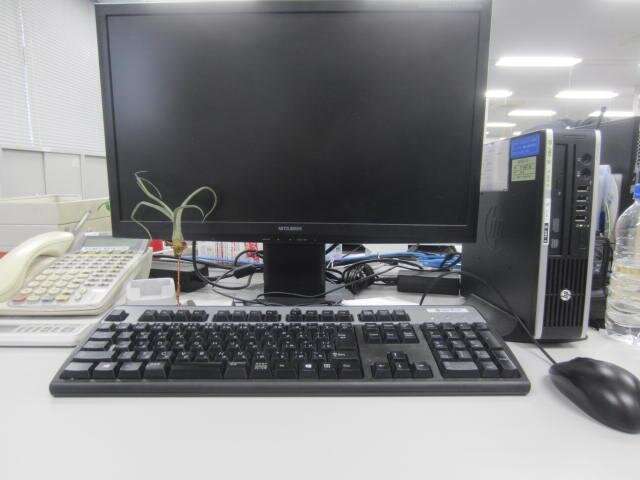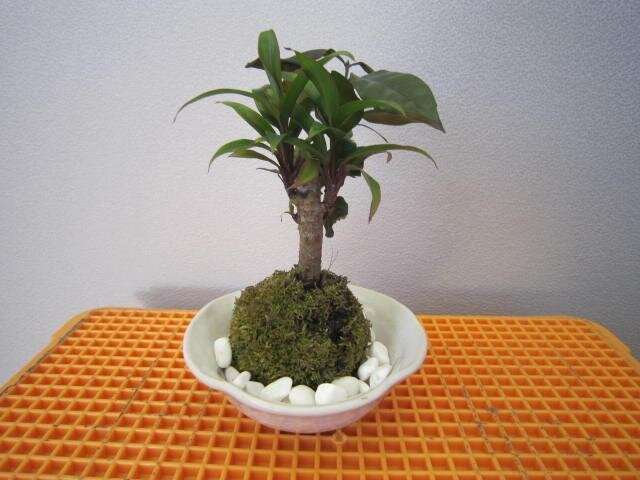Living yoga for the mind
by Reshma Lakha-Singh, Wits University JANUARY 17, 2020

Plants in the office. Credit: Lauren Mulligan | www.wits.ac.za/curiosity/
Plants in the office are not there just to look pretty. They can lead to increased productivity, as well as improved mental health for workers.
We all know that taking a walk in the garden or going for a run in the park after work can do miracles for getting rid of the stress of a hard day in the office.
Greenery and plants have been recognised to have a calming impact on us. For example, Apple Inc."s four storey circular building in Cupertino, California, nicknamed the "spaceship" is filled with drought-resistant trees and indigenous plants. Microsoft employees at the Redmont Campus in Seattle make use of treehouse boardrooms and Amazon has a look-alike rainforest office space that houses 40 000 plants in downtown Seattle.
By recreating "natural" spaces, these multinational corporations hope to encourage and enable creativity, mindfulness and innovation amongst their employees through a link to nature.
Headspace
"There are obviously many physical benefits to having plants in the workspace, but the reality is that in order to truly feel the real CO2 and O2 transference, you have to have a jungle in your office," says Professor Andrew Thatcher, Chair of Industrial and Organisational Psychology and a specialist in green ergonomics at Wits.
"However, the psychological benefits based on Attention Restoration Theory (ART) hypothesised by University of Michigan Professors Rachel Kaplan and Steven Kaplan, indicate that nature is not only pleasing to the eye but can also help concentration and renew mental energy. It provides an escape from our normal indoor sterile environments."
Interested in the study of the reciprocal relationship benefits between human and nature, Thatcher investigated the psychological benefits of plants in the office after seeing a similar study conducted in the northern hemisphere, in countries with severe winter conditions.
"We wanted to replicate the study in a country with warmer temperatures that enable plants to survive all seasons," says Thatcher.
He placed groups of participants in three rooms. The first room had plants, room two had pictures of plants, and the third room was bare. All participants were given tasks to complete. The results indicated that performance was best in the room with plants, thereafter the room with pictures of plants and the worst result was the sterile environment.
"Another case study done internationally placed office workers into three groups. One group did yoga in a closed room, another walked the city, whilst the third walked around in a park. The park had the best restoration effect and the yoga studio had the worst. The point was not doing yoga, but getting out into nature," says Thatcher.
He adds that in our constructed environments our attentional capacity becomes shortened the longer we spend in those environments.
"The type of work we do is highly cognitive and very stressful. Our escapes are talking to others but very often we talk about work. We don't get an opportunity to recoup our attentional resources, therefore you need a way of topping up those attentional resources. Plants enable us to do this," says Thatcher.
"Many of us spend so much time interacting with technology, cooped up in closed offices. Our jobs require us to solve problems, multi-task and pay attention to detail. Our daily lives are filled with ambient noises such as alarms, ringing phones, television and sirens—the list goes on. So, plant up your office space, it may just be the yoga that your mind needs."
JANUARY 3, 2020
Plants can improve your work life
by American Society for Horticultural Science
 An air plant used in the study on office stress reduction. Credit: Masahiro Toyoda
An air plant used in the study on office stress reduction. Credit: Masahiro Toyoda
A study out of the University of Hyogo in Awaji, Japan, details the stress-reducing benefits to office workers that even a small plant situated within easy viewing can impart.
Masahiro Toyoda, Yuko Yokota, Marni Barnes, and Midori Kaneko explored the practical use of indoor plants to boost mental health among employees typically removed from exposure to healthy green environments.
Their findings are illustrated in their article "Potential of a Small Indoor Plant on the Desk for Reducing Office Workers' Stress" published in the open access journal HortTechnology, by the American Society for Horticultural Science.
In modern society, stress reduction in the workplace is a pressing issue. While it has been commonly assumed that plant life is soothing to those required to regularly face stressful or mundane situations, this study scientifically verifies the degree of psychological and physiological impact induced by indoor plants. Rather than conducting experiments in a laboratory setting, the researchers calculated stress reduction on employees in real office settings.
Toyoda adds, "At present, not so many people fully understand and utilize the benefit of stress recovery brought by plants in the workplace. To ameliorate such situations, we decided it essential to verify and provide scientific evidence for the stress restorative effect by nearby plants in a real office setting."
Toyoda and his team investigated changes in psychological and physiological stress before and after placing a plant on the workers' desks. Sixty-three office workers in Japan were the participants of this study. The participants were directed to take a 3-minute rest while sitting at their desks when they felt fatigue.
 Kokedama was a plant chosen by some participants in the study. Credit: Masahiro Toyoda
Kokedama was a plant chosen by some participants in the study. Credit: Masahiro Toyoda
There were two phases of the study: a control period without plants and an intervention period when the participants were able to see and care for a small plant. The researchers measured psychological stress in the participants using the State-Trait Anxiety Inventory. The ratio of the participants whose pulse rate lowered significantly after a 3-minute rest with interaction with their desk plant proved definitive.
The objective of this study was to verify the stress-reducing effect of gazing intentionally at a plant in a real office setting when a worker felt fatigue during office hours. Each plant used in the study was chosen and cared for by the worker. Both passive and active involvement with plants in the workplace were considered for their contribution to mitigation of stress and fatigue.
Participants were provided routine visual access to plants by having their choice of plant situated conveniently on their desks (a passive involvement with plants). They also had the opportunity to care for their plant (an active involvement with plants). Furthermore, the researchers considered that intentionally gazing at the plant was, though not involving physical movement, an active interaction with plants that office workers could do quickly and easily at their desks.
Participants were offered a choice of six different types of plants to keep on their desks: air plants, bonsai plants, san pedro cactus, foliage plants, kokedama, or echeveria. Each participant chose one of the six types of small indoor plants and placed it near the PC monitor on their desk.
The calming effects calculated during the study showed that anxiety decreased significantly from pre- to post-intervention. The results did not skew when looking at the data within the various age groups of the workers or with different plant selections. The researchers suggest that placing small plants within close sight contributed to psychological stress reduction across the board.
Toyoda and his team suggest for business owners that small indoor plants could be economical and helpful in efforts improve office conditions for employees. In addition, for growers of indoor plants and business owners of retail plant companies, the field of mental health for office workers could open up a new avenue of a promising market.
Explore furtherHormone keys plant growth or stress tolerance, but not both
More information: Masahiro Toyoda et al, Potential of a Small Indoor Plant on the Desk for Reducing Office Workers' Stress, HortTechnology (2019). DOI: 10.21273/HORTTECH04427-19
Journal information: HortTechnology
Plants in the office are not there just to look pretty. They can lead to increased productivity, as well as improved mental health for workers.
We all know that taking a walk in the garden or going for a run in the park after work can do miracles for getting rid of the stress of a hard day in the office.
Greenery and plants have been recognised to have a calming impact on us. For example, Apple Inc."s four storey circular building in Cupertino, California, nicknamed the "spaceship" is filled with drought-resistant trees and indigenous plants. Microsoft employees at the Redmont Campus in Seattle make use of treehouse boardrooms and Amazon has a look-alike rainforest office space that houses 40 000 plants in downtown Seattle.
By recreating "natural" spaces, these multinational corporations hope to encourage and enable creativity, mindfulness and innovation amongst their employees through a link to nature.
Headspace
"There are obviously many physical benefits to having plants in the workspace, but the reality is that in order to truly feel the real CO2 and O2 transference, you have to have a jungle in your office," says Professor Andrew Thatcher, Chair of Industrial and Organisational Psychology and a specialist in green ergonomics at Wits.
"However, the psychological benefits based on Attention Restoration Theory (ART) hypothesised by University of Michigan Professors Rachel Kaplan and Steven Kaplan, indicate that nature is not only pleasing to the eye but can also help concentration and renew mental energy. It provides an escape from our normal indoor sterile environments."
Interested in the study of the reciprocal relationship benefits between human and nature, Thatcher investigated the psychological benefits of plants in the office after seeing a similar study conducted in the northern hemisphere, in countries with severe winter conditions.
"We wanted to replicate the study in a country with warmer temperatures that enable plants to survive all seasons," says Thatcher.
He placed groups of participants in three rooms. The first room had plants, room two had pictures of plants, and the third room was bare. All participants were given tasks to complete. The results indicated that performance was best in the room with plants, thereafter the room with pictures of plants and the worst result was the sterile environment.
"Another case study done internationally placed office workers into three groups. One group did yoga in a closed room, another walked the city, whilst the third walked around in a park. The park had the best restoration effect and the yoga studio had the worst. The point was not doing yoga, but getting out into nature," says Thatcher.
He adds that in our constructed environments our attentional capacity becomes shortened the longer we spend in those environments.
"The type of work we do is highly cognitive and very stressful. Our escapes are talking to others but very often we talk about work. We don't get an opportunity to recoup our attentional resources, therefore you need a way of topping up those attentional resources. Plants enable us to do this," says Thatcher.
"Many of us spend so much time interacting with technology, cooped up in closed offices. Our jobs require us to solve problems, multi-task and pay attention to detail. Our daily lives are filled with ambient noises such as alarms, ringing phones, television and sirens—the list goes on. So, plant up your office space, it may just be the yoga that your mind needs."
JANUARY 3, 2020
Plants can improve your work life
by American Society for Horticultural Science
 An air plant used in the study on office stress reduction. Credit: Masahiro Toyoda
An air plant used in the study on office stress reduction. Credit: Masahiro ToyodaA study out of the University of Hyogo in Awaji, Japan, details the stress-reducing benefits to office workers that even a small plant situated within easy viewing can impart.
Masahiro Toyoda, Yuko Yokota, Marni Barnes, and Midori Kaneko explored the practical use of indoor plants to boost mental health among employees typically removed from exposure to healthy green environments.
Their findings are illustrated in their article "Potential of a Small Indoor Plant on the Desk for Reducing Office Workers' Stress" published in the open access journal HortTechnology, by the American Society for Horticultural Science.
In modern society, stress reduction in the workplace is a pressing issue. While it has been commonly assumed that plant life is soothing to those required to regularly face stressful or mundane situations, this study scientifically verifies the degree of psychological and physiological impact induced by indoor plants. Rather than conducting experiments in a laboratory setting, the researchers calculated stress reduction on employees in real office settings.
Toyoda adds, "At present, not so many people fully understand and utilize the benefit of stress recovery brought by plants in the workplace. To ameliorate such situations, we decided it essential to verify and provide scientific evidence for the stress restorative effect by nearby plants in a real office setting."
Toyoda and his team investigated changes in psychological and physiological stress before and after placing a plant on the workers' desks. Sixty-three office workers in Japan were the participants of this study. The participants were directed to take a 3-minute rest while sitting at their desks when they felt fatigue.
 Kokedama was a plant chosen by some participants in the study. Credit: Masahiro Toyoda
Kokedama was a plant chosen by some participants in the study. Credit: Masahiro ToyodaThere were two phases of the study: a control period without plants and an intervention period when the participants were able to see and care for a small plant. The researchers measured psychological stress in the participants using the State-Trait Anxiety Inventory. The ratio of the participants whose pulse rate lowered significantly after a 3-minute rest with interaction with their desk plant proved definitive.
The objective of this study was to verify the stress-reducing effect of gazing intentionally at a plant in a real office setting when a worker felt fatigue during office hours. Each plant used in the study was chosen and cared for by the worker. Both passive and active involvement with plants in the workplace were considered for their contribution to mitigation of stress and fatigue.
Participants were provided routine visual access to plants by having their choice of plant situated conveniently on their desks (a passive involvement with plants). They also had the opportunity to care for their plant (an active involvement with plants). Furthermore, the researchers considered that intentionally gazing at the plant was, though not involving physical movement, an active interaction with plants that office workers could do quickly and easily at their desks.
Participants were offered a choice of six different types of plants to keep on their desks: air plants, bonsai plants, san pedro cactus, foliage plants, kokedama, or echeveria. Each participant chose one of the six types of small indoor plants and placed it near the PC monitor on their desk.
The calming effects calculated during the study showed that anxiety decreased significantly from pre- to post-intervention. The results did not skew when looking at the data within the various age groups of the workers or with different plant selections. The researchers suggest that placing small plants within close sight contributed to psychological stress reduction across the board.
Toyoda and his team suggest for business owners that small indoor plants could be economical and helpful in efforts improve office conditions for employees. In addition, for growers of indoor plants and business owners of retail plant companies, the field of mental health for office workers could open up a new avenue of a promising market.
Explore furtherHormone keys plant growth or stress tolerance, but not both
More information: Masahiro Toyoda et al, Potential of a Small Indoor Plant on the Desk for Reducing Office Workers' Stress, HortTechnology (2019). DOI: 10.21273/HORTTECH04427-19
Journal information: HortTechnology
No comments:
Post a Comment